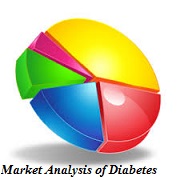
Armin Ezzati
University of Leeds, UK
Title: Does the olive-derived polyphenol oleuropein affect postprandial glycaemic response following a short term high fat intake: Randomised, double-blinded, placebocontrolled, crossover trial
Biography
Biography: Armin Ezzati
Abstract
Polyphenol-rich foods have the potential to improve post-prandial glycaemic response by decreasing glucose absorption thus lowering the risk of Type 2 Diabetes. A randomised, double-blinded, placebo-controlled, cross-over study was conducted on 10 healthy volunteers (5women, 5 men) to investigate whether supplementation with oleuropein extracted from olive leaves extract (Oleaeuropea L.) could attenuate post-prandial blood glucose levels following a 3-day high/normal fat diet. The participants randomised to receive a 3-day high fat diet(~43%fat from daily energy intake) or normal fat diet (~23%fat from daily energy intake) and were given oleuropein(100mg) or placebo capsules for three days before each visits. The participants were fasted and attended four sessions: two control visits and two test visits(after 3-day high fat with or without oleuropein). Blood samples were collected following eating a 109g of white bread at 0(fasted), 15, 30, 45, 60, 90, 120, 150, 180 min. High fat diet with oleuropein, high fat diet with placebo, normal diet with and without oleuropein trials were compared together. There were no significant differences between the tests and controls. Change in mean incremental areas under the glucose curves (IAUC) was calculated and no significant difference were observed. Further studies with a larger sample size with more fat percentage from energy is essential to obtain more accurate results.

